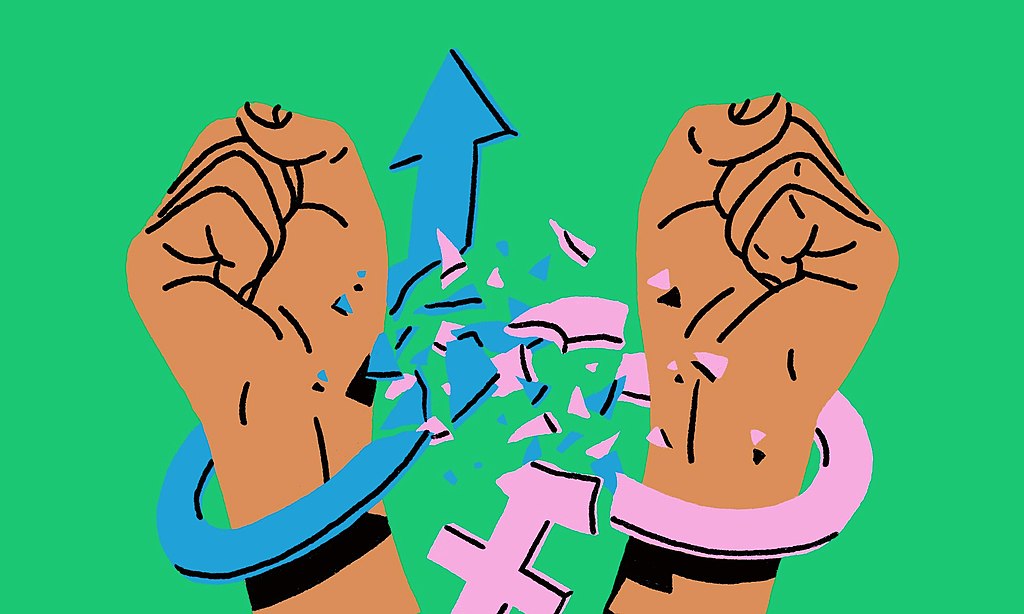By Aqueena Mary Fernandez
When you think of loneliness, perhaps you think of a damsel in distress or an octogenarian feeling obsolete. But who you should really be imagining is a bachelor in a bind: a young man.
A 2020 research study found that age and gender can influence how lonely people feel. Younger people report more loneliness than older people, and men are more vulnerable to loneliness that is more intense than women.
One reason may be that men are victims of stigma and are plagued by gender roles, says Dr. Regilda Romero, a clinical psychologist at the University of Florida, an outside source not involved in the study.
The study used statistics from the BBC Loneliness Experiment, a large database boasting 46,054 participants who were 16- to 99-years old from more than 200 countries. Survey-takers responded to questions about loneliness such as, “Do you feel a lack of companionship?” And: “Do you feel in tune with people around you?”
Two main effects stood out: Loneliness decreased with age and was more extensive in men than women. The size of the effects were modest, but consistent.
Past research studied how lonely people are and who is at most risk through examination of social skills, personality, and resources, and generally have included fewer participants, making conclusions less robust. For instance, a 2016 study found people who already found it difficult to maintain social relationships due to other factors, such as health issues or physical isolation, are more likely to be at risk for experiencing loneliness.
Loneliness can be defined as, “The lack of sense of belonging and the perceived perception of being loved,” Romero says. It’s a pervasive state that many people feel in various parts of their lives: through transitions, loss, and even the day-to-day. But when it’s prolonged, it can have adverse effects on long term well being.
The study authors assert: loneliness is real, and it is a universally experienced state.
Other researchers agree that loneliness is worthy of study. Dr. Martina Luchetti, a psychological scientist from the University of Bologna, Italy, says it’s time that society becomes more aware of the detrimental effects that loneliness can have on the health of individuals and their communities.
It also is important to understand which community members are most vulnerable.
Gender roles appear to contribute to male adolescent loneliness. “In most cultures, men are expected to provide. Men are expected to lead,” says Romero. Those cultural expectations can adversely affect men’s social relationships. And cultural roles tend to endure across generations.
As leaders, men may prioritize respect over friendship for fear of contempt or being taken advantage of, she says. The loneliness that results elevates risk for poor mental health and can have a significant impact on long-term health.
“In the aging population there’s evidence that higher levels of loneliness increase the risk for chronic disease, dementia, and ultimately early mortality,” Luchetti says. So understanding factors that lead to increased loneliness and its detrimental consequences is crucial.
Healthcare providers and policymakers should be cognizant of the complexities of loneliness and the havoc it can wreak, Luchetti says. The key is prevention, and screening is as simple as a singular query: “How lonely do you feel?” “We know that even one question like that is predictive of outcome years later, so even a simple screening with a physician is a good way to make these interventions,” she says.
Screening should begin early, Luchetti says, especially since it was young men found to be most at risk.
As for the age effect, the researchers hypothesize that young men may be more reluctant to admit feelings of loneliness, while in old age, it is less disgracing to acknowledge society’s expectation of strength.
Overall, people are more willing to talk about their mindsets today than they were in decades past.
“There’s an increase in mental health rates because now people are asking questions. People are going to their physicians to get evaluated. There’s more psychoeducation, there’s more education, there’s more awareness,” says Romero. As more and more people become attuned to their mental wellbeing, emphasis on interpersonal relationships and isolation should be taken into consideration and cared for accordingly.
So where do we go from here? Increasing attention to loneliness and its impact on individuals is a good start, Romero says. But we, as members of society, should strive to overturn societal expectations on men, particularly young men, she says, beginning by having conversations, which can act as building blocks for the creation of stronger communities.
Aqueena Mary Fernandez is a sophomore at the University of Florida majoring in psychology with an emphasis on behavioral and cognitive neuroscience. She is a research associate for the Florida Exposure and Anxiety Research Lab and is passionate about adolescent mental health as well as minority populations’ psychological assessment and treatment and stigma. Email her at aqueenafernandez@gmail.com.
This story was produced as part of NASW's David Perlman Summer Mentoring Program, which was launched in 2020 by our Education Committee. Fernandez was mentored by Jill Adams.


.png)

